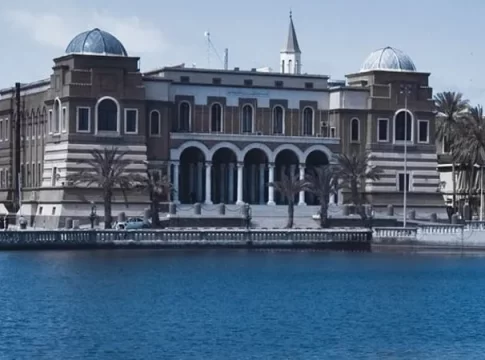In a significant move to stabilize its financial sector, Libya’s eastern parliament has officially approved the appointment of Naji Mohamed Issa Belqasem as the new Governor of the Central Bank of Libya (CBL). This decision comes in the wake of escalating tensions and the recent departure of former Governor Sadiq al-Kabir, who fled the country citing threats from armed militias.
The announcement has been met with mixed reactions across Libya’s divided political landscape. The UN-backed institutions in the western part of the country have shown resistance to the appointment, highlighting the ongoing power struggle between rival factions. The United Nations Support Mission in Libya (UNSMIL) has called for dialogue and cooperation to ensure economic stability during this transitional period.
Naji Mohamed Issa Belqasem brings a wealth of experience and expertise to his new role. Born in Benghazi in 1965, Belqasem pursued his higher education in economics at the University of Tripoli, where he graduated with honors in 1987. He furthered his studies with a master’s degree in finance from the London School of Economics in 1992, followed by a Ph.D. in monetary policy from the University of Cambridge in 1997.
Belqasem’s career in the financial sector spans over three decades. He started his career at the Libyan Foreign Bank, where he quickly rose through the ranks due to his acumen in financial management and policy-making. In 2005, he was appointed as the Deputy Governor of the Central Bank of Libya, a role he held until 2011. During his tenure, he played a crucial role in implementing monetary policies that helped stabilize the Libyan economy during periods of international sanctions.
Following the 2011 revolution, Belqasem took a brief hiatus from public service, during which he worked as an economic consultant for several international financial institutions, including the International Monetary Fund (IMF). His return to Libya in 2018 saw him take up the role of a senior advisor to the Ministry of Finance, where he was instrumental in drafting fiscal policies aimed at economic recovery.
As the new Governor of the Central Bank, Belqasem steps into his role at a critical juncture. The Central Bank of Libya has been at the heart of the country’s latest political crisis, which saw the shutdown of major oil fields and a severe economic downturn. The new governor’s immediate tasks will include addressing these crises and ensuring the resumption of essential banking operations, which were halted following the abduction of a senior bank official in Tripoli last month.
Interim Prime Minister Abdulhamid al-Dbeibah has emphasized the need for unified efforts to support the new leadership of the Central Bank. He has urged all factions to put the nation’s financial health above political rivalries.
Belqasem’s appointment is seen by some analysts as a potential turning point, with the hope that it may pave the way for resolving Libya’s broader political issues. A recent statement by UNSMIL noted that a deal endorsed by leaders from both sides of Libya’s political divide could help resolve all political issues if implemented effectively.
However, the road ahead remains fraught with challenges. Armed groups continue to exert influence over political decisions, and any unilateral moves might provoke further unrest. The international community, including the United Nations and the United States, has called for a ceasefire and constructive dialogue to support the new governor’s efforts in stabilizing Libya’s economy.
Belqasem’s track record and expertise have instilled a sense of cautious optimism among Libyans. His vision for the Central Bank includes modernizing Libya’s banking infrastructure, enhancing transparency, and fostering an environment conducive to economic growth. He has expressed a commitment to working closely with international partners to rebuild trust and ensure Libya’s financial stability.
As Belqasem takes on the mantle of his new role, the people of Libya watch closely, hopeful that this change in leadership will lead to a period of economic recovery and political reconciliation.



